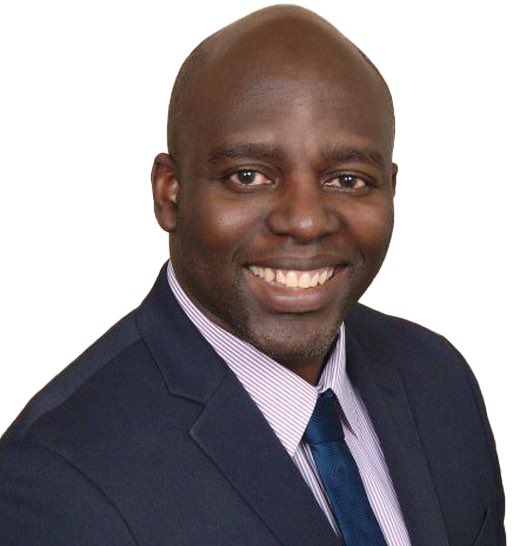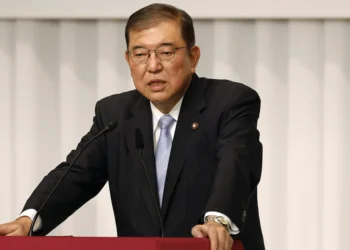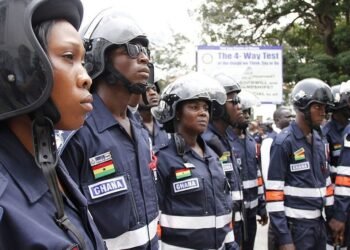As Ghana’s opposition New Patriotic Party (NPP) prepares for its pivotal January 2026 presidential primaries, the political temperature within the party is steadily rising.
A recent declaration of support from a significant bloc of Members of Parliament (MPs) for former Vice President and 2024 Presidential Candidate, Dr. Mahamudu Bawumia, has sparked considerable debate.
However, an insightful analysis from Professor John Ossae Kwapong, a D&D Fellow at the Centre for Democratic Development (CDD-Ghana), suggests that these early endorsements are a natural manifestation of intra-party democracy, rather than a harbinger of disunity.
His perspective offers a nuanced understanding of the dynamics at play as various aspirants vie for the party’s highest office.
“For me, I don’t think that at this early stage, I would classify this as disunity within the rank and file of the party. The presidential primary is an open contest where every party member, irrespective of their position – be it a party executive, a regular member, or a Member of Parliament – is inherently free to choose whoever they want to support.”
Professor John Ossae Kwapong, a D&D Fellow at the Centre for Democratic Development (CDD-Ghana)
This fundamental right to choose, he argued, is a cornerstone of democratic processes within a political party. Professor Kwapong acknowledged the unique position of MPs, given their stature and influence within their constituencies.

He noted that while some might expect MPs to “hold back and not make their support public” due to the weight they carry, it’s not surprising that some of them have already declared their support for the former Vice President. This, he explained, is entirely “part of the intra-party democratic process.”
Healthy Expression of Democratic Freedom
The willingness of MPs to openly declare their allegiance, rather than being a cause for concern, is seen by Prof. Kwapong as a healthy expression of internal democratic freedom. In his view, the choosing of sides is simply “what comes with a territory” in any competitive internal election.
The critical determinant of party unity, according to Professor Kwapong, will not be these early declarations, but rather how the party navigates the post-primary phase.
“For me, the question of unity would come in when the primary is over,” he stated. His analysis meticulously outlined the factors that will truly test the NPP’s cohesion.
These include “how the primaries go,” implying the fairness and transparency of the process itself, and more importantly, he stressed, is “how all the contestants conduct themselves during the primary.”
Additionally, Prof. Ossare Kwapong noted that the rhetoric used by aspirants about each other, and “how far they carry their competitive spirit in the things they say about each other,” will be crucial.
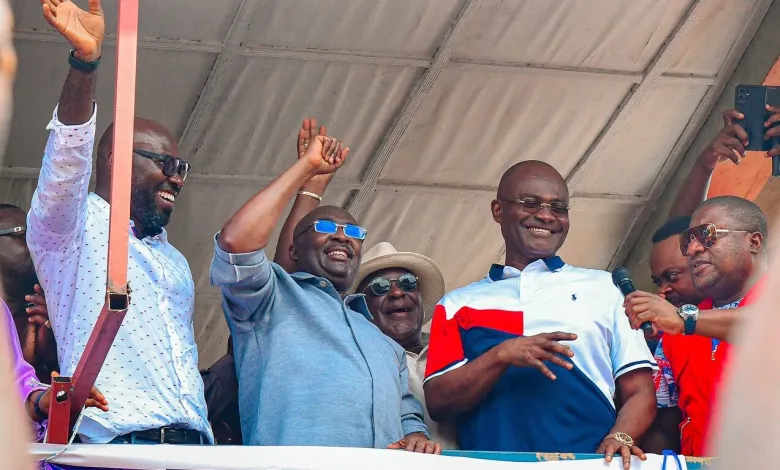
He stressed that if the campaigns descend into acrimony and personal attacks, the wounds inflicted could be deep and difficult to heal. Furthermore, Professor Kwapong highlighted the management of grievances as a pivotal factor.
“If there are grievances leading to and after a winner is declared, how the party manages it would be very critical to the party’s unity going into the 2028 general elections.”
Professor John Ossae Kwapong, a D&D Fellow at the Centre for Democratic Development (CDD-Ghana)
For him, this underscores the need for robust internal conflict resolution mechanisms and a genuine commitment from all aspirants and the party leadership to reconcile differences once a flagbearer is chosen.
The ability to bring all factions together, address concerns, and ensure that losing candidates and their supporters feel respected and integrated will be paramount for presenting a united front in the upcoming general elections.
NPP’s Internal Contest
The NPP’s internal contest has gained momentum following reports that approximately 60 of the party’s MPs have publicly thrown their weight behind Dr. Bawumia.
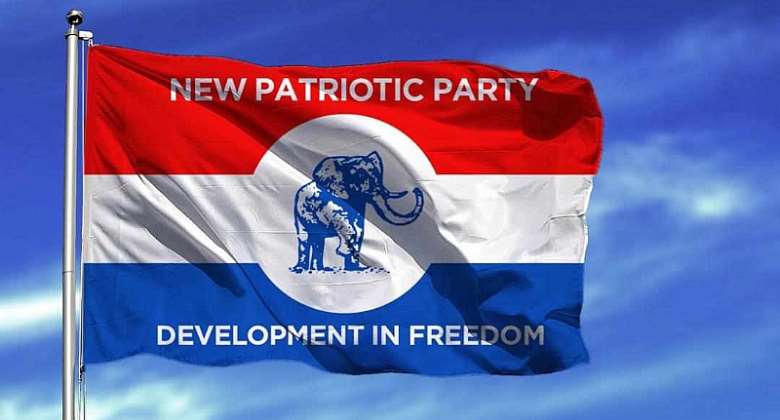
In a related development showcasing the varied approaches to campaigning, the former Assin Central MP Kennedy Agyapong, who was also a flagbearer aspirant in the previous contest, has been actively mobilising support.
He recently engaged 268 former Metropolitan, Municipal, and District Chief Executives (MMDCEs) as part of his bid for the 2026 Presidential primaries.
Such engagements underscore the grassroots nature of the contest and the importance that aspirants place on securing the backing of influential party figures at the local level.
The former MMDCEs, with their extensive experience in local governance and political organisation, represent a critical network for any aspiring flagbearer.
In conclusion, while the early endorsements and declarations of interest within the NPP may appear to suggest initial divisions, Professor John Ossae Kwapong’s expert analysis reorients this perception.
He argued that this is a healthy demonstration of internal democracy, where members are free to express their support.
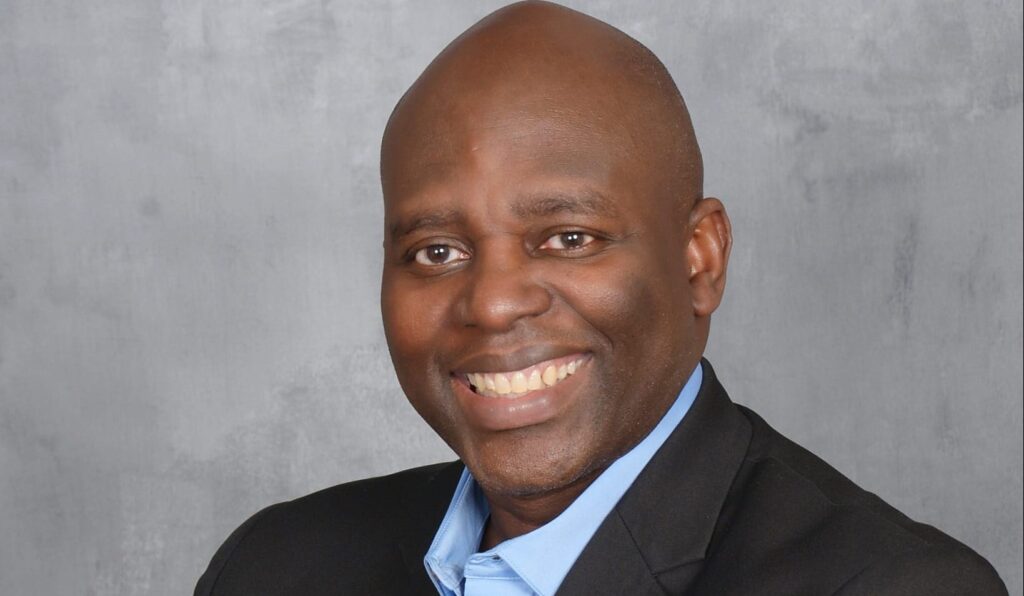
For him, the true test of the NPP’s unity will come after the primaries, contingent on the conduct of all contestants during the campaign and, crucially, the party’s ability to effectively manage grievances and foster reconciliation once a winner emerges.
The NPP’s preparedness for the most important national electoral challenge will be shaped by the dynamic interaction of individual ambition, strategic alliances, and the party’s internal democratic processes as it prepares for its 2026 presidential primary.
READ ALSO: Some OMCs Slash Fuel Prices, Warn of Possible Hike in July

